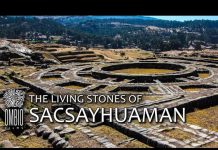Amidst the annals of documentary history, certain films stand as timeless enigmas that provoke contemplation and spark curiosity. “Chariot Of The Gods,” a classic from 1970, resides within this echelon—an exploration that ventures beyond the boundaries of conventional understanding, probing the captivating question of whether ancient “astronauts” once graced Earth’s realms, perhaps even birthing the human race. Rooted in the evocative best-selling book by Erich Von Daniken, the documentary presents a compelling argument that invites viewers to ponder the mysteries that have eluded us through the ages.
The narrative unfurls with a blend of curiosity and skepticism, as the film embarks on an odyssey to unveil ancient secrets and unearth the echoes of an otherworldly presence. The central inquiry reverberates through time—did beings from distant realms once descend upon our planet, their impact reverberating through the fabric of human history?
“Chariot Of The Gods” delivers its argument with an arresting blend of visual evidence, historical analysis, and speculative storytelling. The documentary weaves a tapestry that connects the dots between ancient artifacts, monumental structures, and the tantalizing possibility of extraterrestrial intervention. As the narrative unfolds, it probes the motivations behind the creation of awe-inspiring wonders—monuments that defy conventional explanation and speak of a purpose that extends beyond the terrestrial.
Viewers are invited to traverse the landscapes of the past, journeying through civilizations and epochs that, through the lens of “Chariot Of The Gods,” take on new dimensions of intrigue. The film sparks conversations around the enigmatic Nazca Lines, the mystical Moai of Easter Island, and the Pyramids of Giza—a triumvirate of enigmas that resonate with the idea of a cosmic influence.
While rooted in curiosity and wonder, the documentary does not shy away from skepticism, acknowledging that speculation is but a gateway to greater exploration. It acknowledges the complexities of the narrative it presents, compelling viewers to engage with questions that transcend the confines of established knowledge.

































